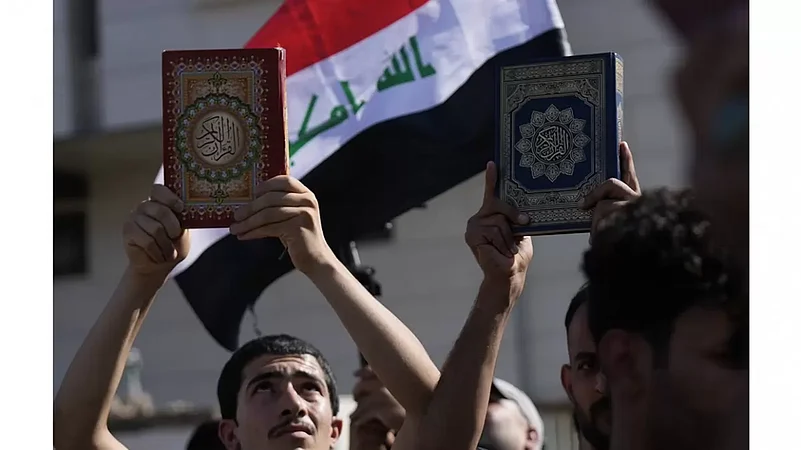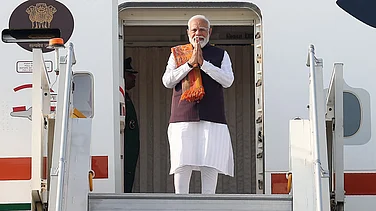Tensions flared in Baghdad as anti-government protesters outraged by planned Quran burnings in Sweden stormed the Swedish embassy, resulting in its destruction by fire. In response, the Iraqi Prime Minister, Mohammed Shia al-Sudani, swiftly expelled the Swedish ambassador and recalled the country's charge d'affaires in Sweden, further escalating diplomatic tensions between the two nations.
The incident unfolded after demonstrators at the embassy displayed flags and signs featuring Muqtada al-Sadr, a prominent Iraqi Shia religious and political leader. The protesters were responding to an announcement about a second planned Quran burning in front of the Iraqi embassy in Stockholm, Sweden, which had infuriated supporters of al-Sadr, according to Al Jazeera.
Although the protesters in Sweden did not ultimately burn the Quran as previously threatened, they kicked and partially damaged a book claimed to be the Quran. Nevertheless, the incident sparked outrage among Iraqi protesters, leading to the violent actions at the Swedish embassy in Baghdad.
The Finnish embassy, located adjacent to the Swedish embassy, took proactive measures to protect its staff, and the Finnish ambassador to Iraq confirmed that the evacuation was successfully carried out with no injuries reported.
In the aftermath of the embassy attack, the Swedish foreign ministry condemned the violence and emphasized the necessity for Iraqi authorities to safeguard diplomatic missions. The United States joined in condemning the attack and expressed dissatisfaction with the inadequate protection provided by Iraqi security forces during the incident.
State Department spokesman Matthew Miller acknowledged the right to protest as part of democracy but stressed that the attack on foreign missions is an unlawful act of violence and should not be tolerated.
The Iraqi government has responded to the situation by initiating an urgent investigation to identify and hold accountable the perpetrators of the embassy attack. Moreover, a statement from the prime minister's office warned that diplomatic ties with Sweden could be severed if another Quran burning incident occurs in the country.
Iraqi analyst Ihsan al-Shammari cautioned that Iraq may face potential consequences for its decision to expel the Swedish ambassador, as other European countries might respond with actions that isolate Iraq among European and Western states.
Protesters continue to gather outside the Swedish embassy in Baghdad, vowing to sustain their demonstrations until the Swedish diplomatic mission is dismissed. They demand that the Swedish and Iraqi governments put an end to such initiatives that disrespect the Quran, which is revered for its message of love and faith.
The situation was sparked by Salwan Momika, an Iraqi refugee in Sweden, who had previously burned pages of the Quran in front of Stockholm's largest mosque on a Muslim holiday. His actions triggered protests from several Muslim countries, including Iraq, which sought his extradition for trial. Swedish authorities initially granted Momika a permit, citing free speech protections, but subsequently opened an investigation for "agitation against an ethnic group" due to the proximity of his actions to the mosque.


























